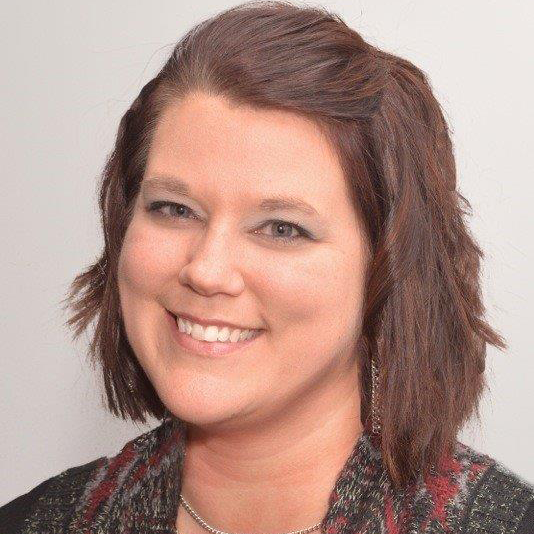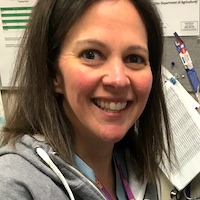
Episode 49
All is Well with My Soul: A Multi-Faceted Approach to Overall Wellbeing
With so much attention being paid to veterinary wellbeing over the past few years, we all know by now that a person’s health goes far beyond just the physical. Not only does mental wellness have an impact on overall health, but so do the everyday stresses of life—from legal to financial to personal and everything in between.
More and more, employers are realizing that personal problems don’t necessarily stay personal. They inevitably bleed into work and affect job performance, morale, productivity, and more. That’s why employee assistance programs (EAPs) are growing in popularity—and why OVMA recently partnered with CorpCare to provide its members with the support they need in all aspects of life.
In today’s episode, we’re joined by Nicole Browning, who gives us an in-depth look at this new member offering. You’ll be surprised to hear how much it covers—and even more surprised to find out how affordable it is!
In part two, we resume our Meet the Board series with newly installed OVMA Director At Large, Dr. Allison Lash.
Note: We’ll be back on May 2nd with the second episode of our Veterinary Medicine & the Media Series with Dr. Courtney Campbell.
Episode Guests

Nicole Browning
M.A., LPC, CEAP
A licensed professional counselor with 15+ years of clinical experience, Nicole is a client manager at CorpCare.
Learn More »

ALLISON LASH
DVM
Dr. Allison Lash is the medical director at the Cleveland Animal Protective League, where she works closely with the humane investigations team.
Learn More »
Cover Photo by Mohamed Nohassi on Unsplash
Transcript
Part I
Mia Cunningham: Welcome to the Fully Vetted Podcast, brought to you by the Ohio Veterinary Medical Association. My name is Mia Cunningham and I’m here with Krysten Bennett and Nicole Browning of Corp Care. Nicole is joining us to chat about a new OVMA member benefit. The association has partnered with Corp Care to provide employee assistance program services to OVMA members and their employees. Welcome to the show, Nicole.
Nicole Browning: Yeah, thanks for having me. I’m excited to be here today.
MC: So before we get into what an actual EAP is, can you tell our listeners just a bit about yourself and your role at Corp Care?
NB: Yes. I am actually a licensed professional counselor. I spent about 15 years working in addictions before moving into a training and public speaking role. I worked for an insurance company doing EAPs and utilization management and I was also a clinical trainer. So now with Corp Care, my title is client manager, and I’m the main contact for all of our clients when it comes to account management type thing. So questions, trainings, supervisor, consultations, anything like that.
MC: Let’s just kind of get into the meat. What is an EAP?
NB: EAP stands for Employee Assistance Program. The EAP is really designed to help employees with personal and/or work-related problems that may impact their job performance, health, mental, or emotional wellbeing. EAP programs are mutually beneficial, both to the employer and the employee, because the EAP helps employees identify and resolve personal concerns, helps with work organizations to address productivity issues.
They were actually initially set up to deal with alcohol and substance use problems for workers, and then employers realized that workers are often less productive if they’re concerned about things going on outside of work. So, EAPs really expanded to be what they are today to include counseling, legal, financial, child care, elder care, and all those sorts of things.
Krysten Bennett: And the price point for all these services is insanely low.
NB: Yeah. The current cost for one hospital is $300 per year for the three-session model, and then for the five session model, it’s $450 per year per hospital. That covers all the employees in that location and all their dependents, meaning anyone in the household, along with kids up to age 26.
KB: Yeah. That’s crazy cheap. It’s like a no brainer, I think.
NB: Right.
KB: Why is it so inexpensive?
NB: It really is because of the aggregate. Regular pricing for any group under 100 employees is anywhere from $2,700 to $5,000 annually. The super deeply discounted rates are due to working through your association. So by aggregating members, we can supply the full complement of services at this discounted rate.
KB: So it pays to be an OVMA member.
NB: (Laughs) That’s right.
MC: So overall, why would veterinarians and their support staff directly benefit from having access to EAP services?
NB: Man, it’s 2022, right? I feel like today, more than ever, we need health care, and we need access to mental health services. They are in the healthcare industry, right, which is still really being rocked by COVID: The burnout, the stress, anxiety, depression, relationship issues. Everything is just harder. Having an EAP in place is like having health insurance or a spare tire or fire extinguisher—one of these safety measures that nobody ever wants to have, but are we so glad when we do have them at our disposal.
I think a lot of times people think about mental health only when it comes to a crisis or they can’t take it anymore, and this is a last resort. I wish mental health was more preventive in nature. Like, we go to the doctor for an annual visit. You want your pets to be seen for a regular visit to make sure that they’re healthy. Let us as people also go to therapy and make sure that we’re healthy. We can’t pour from an empty cup. And I think those of us who are helpers are the worst at helping ourselves and making sure that we’re taken care of. So I really think that seeing veterinarians pushing mental health care to the forefront and impressing how very important it is could be so, so helpful. Mental health care is healthcare.
MC: Absolutely. Well, can you take us through the enrollment process? What steps will the practice owner take to enroll their company?
NB: The OVMA member would go to our website, CorpCareEAP.com. There’s an association access tab, and you then click on the OVMA tile. Once you’re logged in, it’s a really simple form that just asks for the address of the hospital, the number of employees, and that’s where you choose that session model of three or five sessions and complete payment. Then once they’ve clicked the enroll button, I get an email notification. I kind of do all the stuff on the back end to enter them into our database, and then I’ll email them like, “Hey, you’re live, you’re ready to go. Everything is set up. Your employees can start calling us immediately, start using the helpline.” And then I also send them digital promotional materials, flyers and such.
KB: So, I’m a practice who signed up. Do I need to give you a list of my employees that need to be included in the program?
NB: No, actually, we work on an assumed eligibility model. We don’t require a list of employees. We’re enrolling hospitals, and we will verify the eligibility of the hospital itself, but not the individual wanting to utilize the program. So if you call and you say that you work at ABC Clinic, and ABC Clinic is a covered clinic for us, we’re going to go ahead and give you services.
MC: Let’s say a practice owner has more than one practice. Do they have to enroll each of their practices?
NB: Yes. It’s the exact same process for each hospital. So, they go through and sign up Hospital #1, click enroll, and then they do have to do the process again. That way we can enroll each hospital separately so that each of the employees at each location are covered.
KB: Some practices have what they call satellite offices, where it’s the same employees that kind of rotate back and forth. Would that count as a second location?
NB: Great clarification. No. So in that case, if you’re using the same staff that just kind of rotate through locations, we would not charge you that second hospital fee.
KB: Is mental health the only thing that an EAP can provide support for?
NB: Perfect. No! Because it all intertwined together, right? This is where EAPs really have expanded over the years. So, of course, the thing most people hear about and know about are those counseling sessions, but they also get work/life benefits. These are things that really help balance the stress between home and work. One of the resources that we offer are childcare and elder care or even convenient services.
Clients are provided with three to five preventive resources. I always kind of akin this to the Angie’s List. We’re not just Googling places. We actually have an external vendor who this is really their area of expertise. So if you need child care for a six month old, or you need summer camps for your kids, or you need respite care for grandma, they’re included. Even for the convenience services—if you’re relocating and you need to find out about relocation services, or find a licensed and bonded plumber in your area or a pet sitter. They can find those sorts of resources for you and make sure that they’re legit.
You also get access to legal and financial consultations. The client gets an initial consultation with an attorney at no cost. If they choose to retain the attorney, they get a 25% discount off their normal hourly rate, and then they also have legal articles and forms on the website. And for the financial consultation, the client can speak with an expert about things like budgeting, debt consolidation, retirement, investing, savings, that kind of stuff.
MC: Once a company or hospital is actually enrolled, can you walk us through some of the online resources that are available to them?
NB: Absolutely. So our online platform partner is called Life Advantages, and it’s an interactive platform with has thousands, like 20,000-plus resources. It has assessments, videos, quizzes, courses, articles, podcasts, webinars, calculators. It has a legal and financial resource center, like with simple things like wills or contracts. It also has lots of those financial calculators, like a savings goal calculator, a retirement planning calculator, a home affordability calculator. Once a hospital is signed up for services, then I send out a flyer with information on how to access that platform.
MC: So what is not covered under an EAP?
NB: They don’t cover severe mental illness, ongoing chronic substance use disorders, or medication management; that would have to go through a psychiatrist or your PCP. Psychological testing is not covered, nor is group therapy. We do cover family counseling or marital, but not group—not like ten people sit in a circle and talk about depression or anxiety. So there’s a little bit of a difference there. It’s more towards shorter term problems like emotional issues, marital family concerns, substance use, grief, health concerns, that sort of thing.
MC: Now, although those services are not provided, do you have any resources that can point people in those directions should they need those services?
NB: I generally tend to point people towards their insurance to start there and see what is covered, what’s not covered, what their deductible is, what their copays are. Now, if they’re uninsured, we could certainly help them find resources in their area that may be low cost, sliding scale, that sort of thing.
KB: Are there any legal services that the EAP does not cover?
NB: For the legal, they will basically cover anything except work-related stuff—work isn’t going to pay for you to sue work, right? So they won’t do things like workers comp or wrongful termination. But it can be on child support, divorce, estate planning, even traffic violations, that sort of thing.
MC: How many sessions or visits are covered annually?
NB: Hospitals can choose from a three- or a five-session model. Employees and their dependents each get either those three or those five counseling sessions per year.
KB: What exactly counts as a session? Like, if I’m calling to get a referral, does that count as a session or is it the actual talking to the counselor or the lawyer or whatever the case may be?
NB: Great point, and I’m glad you said that, because there are different separate services. So when we’re talking about three to five counseling sessions, that means the counselor or the social worker or the psychologist in your area in your state for that 50-minute session. So actual therapy, that’s your session. You can call us and consult with us, ask us about providers. None of that counts. You get your three or your five sessions with a counselor. Separate from that, you can do the attorney consultation. Separate from that, you can do the financial consultation. Separate from that, you can get the child care or elder care referrals.
KB: So let’s say I’m an employee. How do I get started? What do I need to do? Is it all online? Can I call and talk to someone? Are there hours that I need to be aware of? How does that work?
NB: We are technically available 24/7 via our helpline. So you call 1-800-728-9444, and someone is always going to answer the phone. Now, our CorpCare staff are not here 24/7. We are here from 8 to 6 Eastern time; so, you will get a CorpCare staff during that time, but if you call on the weekend or at 2 a.m., you are still going to get a live person who’s a licensed clinician counselor or social worker who answers the phone, just in case there’s a crisis. They’re going to assess for safety, find out what’s happening, and then pass that information on to us so that on the next business day, we can get back in touch with you, so that we can get those services rolling for you.
Now, however you get a hold of us, whatever time it is, basically we do a short assessment intake. We just kind of ask, what are your presenting issues? What’s happening? That way we know if we’re looking for somebody who can deal with depression or marriage or kids, so that we can find the best therapist. So we find some basic information, we assess for safety, make sure there’s no suicidal concerns, substance use concerns, and then we can find some providers for you in your area.
KB: What if I already have a counselor that I work with and I like them? Can I use that counselor through Corpcare’s EAP?
NB: Only if they’re in our network. Similar to insurance networks, we do credential our own providers, so we make sure that they have the right licensure, liability insurance, that they’ve been in practice for a while. So that counselor would have to be in our network. That counselor could certainly apply to do that, but they would have to be willing to do that and send us all of their credentials and paperwork in order for us to approve them to be in our network.
MC: Now here’s a tricky one. Will employers be notified if their employees are utilizing services?
NB: Great question. So the short answer is no. We really are very careful about HIPAA compliance and making sure that we don’t break any confidentiality. Anything that is reported is going to be aggregated. So we may be able to tell a hospital that you had 3% of your employees access services, but nothing that’s identifiable. And really, the information that we share with each hospital is going to depend on the size of the hospital. If you have four employees and I tell you one person accessed care, you might have an idea of who that is. But if you have 100 employees and I tell you that five people accessed care, then it’s a little bit less identifiable.
KB: So what if an employee hits that three- or five-session limit? What do they do after that if they want to continue with those services?
NB: They would then either roll into using their insurance, whatever kind of coverage they have there, or they can self-pay.
MC: If services are needed beyond the scope of what’s provided under the program, are the out-of-pocket expenses the responsibility of the employee or does the employer take care of that?
NB: Whatever their current set up is—it probably depends on the hospital and their insurance coverage. But generally, any mental health needs not addressed within the scope of the EAP would probably go through insurance or self-pay by the employee or the client themselves.
KB: So let’s say I’m a practice owner and I chose to sign up for the three-session plan, but I find out anecdotally that employees are using it more than I expected. Can I upgrade or, similarly, downgrade my plan at any time, or do I need to wait for the renewal period?
NB: Yeah, they would want to wait until the renewal cycle. That’s a great point. And I think that’s something where sometimes they may find that kind of information out internally—because, to your point, they want to know, like, are we using the services? Are we not using the services? If they know the services are being used, sometimes they will bump up to a five-session plan or bump down to a three-session plan if they’re not. I’ve even had owners who were like, “Hey, I know that Johnny has been using this service, and I think it’s worth it. So let me go ahead and bump up to get him as many sessions as possible.”
MC: Is this policy something that’s renewable annually?
NB: Basically, the enrollment for the OVMA is going to be June through July. So whenever the hospital happens to sign up, if it’s in April or August or December, your enrollment lasts until the end of May. The contracts are not auto renewable. I will actually be physically sending out an email reminder in May to every hospital that’s enrolled, reminding them, “Hey, your services are going to terminate June 1 unless you choose to renew.”
MC: If people have any additional questions, what would be the best way they can reach you?
NB: They can call me directly. My direct line is 678-534-7625. They can also shoot me an email. My email is nicole@corpcareeap.com.
MC: Thank you for joining us today. You provided us with some great information and I’m really excited the Association is offering these services to our membership.
NB: Yeah, absolutely. I’m glad we were able to set it up, and hopefully you guys will get it pushed out and people will start taking advantage.



